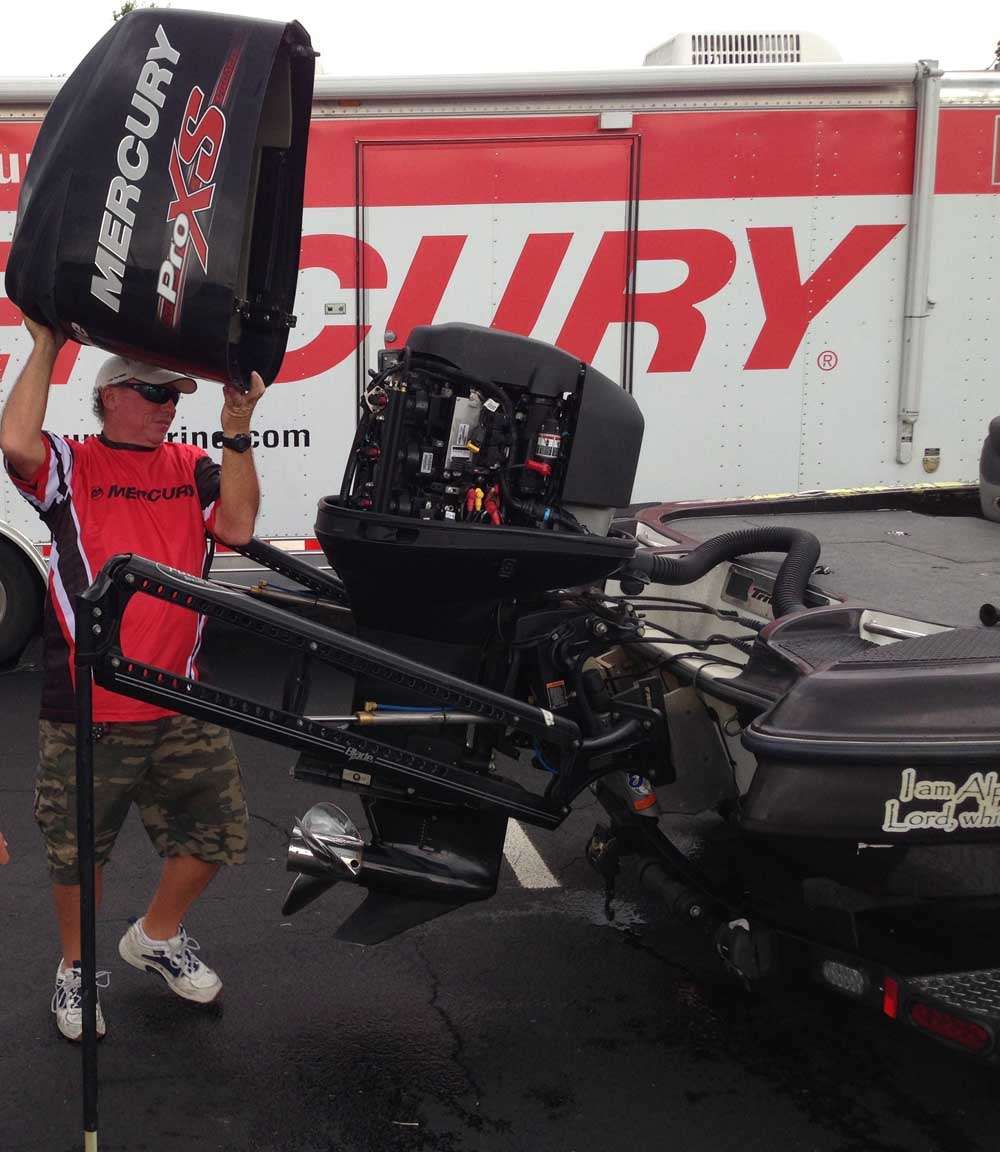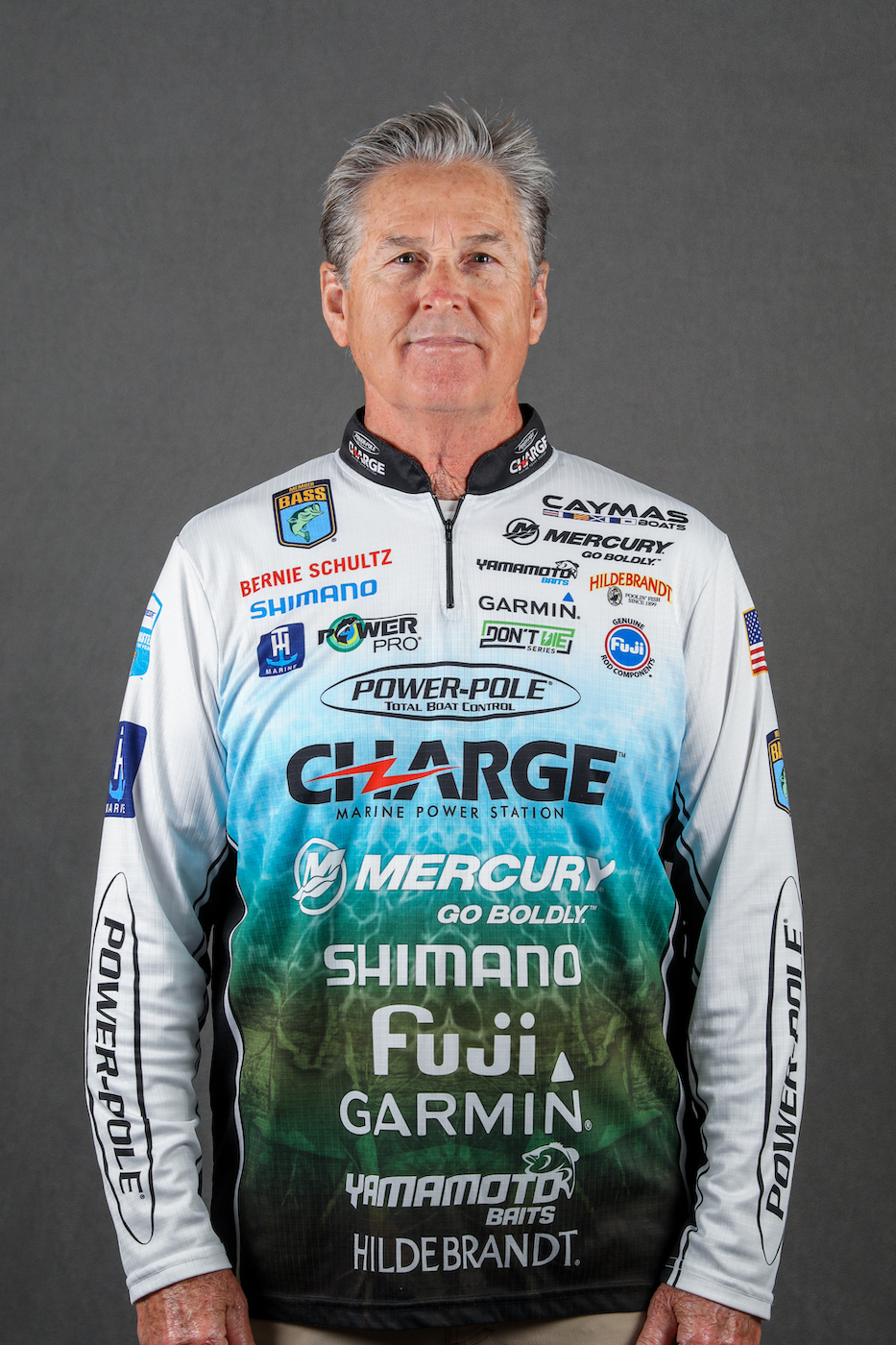
You read and hear a lot about confidence and its importance in bass fishing — especially competitive fishing. It's all true. Perhaps nothing is more important than confidence, but it's sometimes more than just the belief you're going to catch fish.
At a recent Elite event, I ran 80 miles each day to get to my fish. As you can imagine, that required a lot of confidence. Not only did I believe I had a spot that was good enough to warrant the travel time, I also needed confidence in my equipment to get me there and back safely.
After all, there's not much point in catching a good tournament limit if you can't get back in time for the weigh-in.
I take a lot of pride in my equipment, and that includes my Ranger boat and Mercury outboard. I've learned a lot about caring for my gear over the years, but I could never hope to know as much as my friend, Scott Beattie of Mercury Marine.
"Scottie B," as he's known throughout the fishing industry, is something of a legend on the tournament scene. If it runs on gas and turns a prop, he can make it go. Over the years, he's put many pros back on the water when poor preventive maintenance, bad navigation or simply bad luck sent them to the service yard. He's also lectured more than a few pros on proper boat and motor care. He truly knows his stuff.
With Scottie B's help, I came up with this 8-point checklist that will help to keep you fishing rather than waiting for news from your mechanic.
1. Tighten up — No matter where you fish, but especially if you fish big water with big waves or make long runs, you need to make sure that your engine bolts are tight. Rough water or even long-distance trailering can loosen them, and could cause you to lose your outboard!
2. Props are delicate — Outboard propellers look pretty rough and rugged, but they deserve special care. A loose prop can destroy your prop shaft at the bearing carrier. Also, as Scottie B puts it, "Fishing line can mean death to a prop shaft — especially braided line." He advises that you check your prop after each day on the water, or at least after every tournament. Prop hubs are critical items, too. Many are made of plastic — high-grade plastic, but still plastic — and over time they wear and can come loose.
3. When it's warm … — Now that it's the hottest time of the year, your engine needs special care. One thing you can do to protect it is to drop down one size in your prop pitch. If you normally use a prop with a 21 pitch, consider dropping down to a 20 pitch prop. This will increase the wide-open-throttle (WOT) RPM for your engine.
4. How many blades? — If you run a lot of big water, you should consider using a four-bladed prop instead of the more conventional three-bladed models. This will decrease your RPMs, but give you better "bite" on the water.
5. Battery connections — Loose battery terminals can cause real problems, and they always seem to happen at the worst times. Make sure your connections are clean, free of corrosion and tight.
6. Lower unit oil — Scottie B tells me that lower unit oil is one of the most overlooked yet critical aspects of maintaining a high-performance engine. He says tournament anglers should probably be changing their lower unit oil after every other tournament. If you're only getting out on the occasional weekend, yours' might last all season.
7. Tilt and trim — This feature simply has to be working or you won't get proper performance out of your engine. Check it before you launch. If it's not functioning properly, you'll be limping out there on the water.
8. Jack plates — Hydraulic jack plates are great for anglers who love shallow water, like me. They allow you to get into places you'd otherwise never be able to go with a big, comfortable boat and will also enhance the performance of your outboard, both at top-end speed and in rough water. That said, they need to work, so keep them properly lubricated. Some require a silicone lubricant. Others just need regular cleaning. Check your owner's manual.
This 8-point checklist can help you as much as it helps me, but it's no replacement for regular maintenance with your dealer. Depending on the conditions you fish, the fuel you're using and too many other variables to mention, periodic maintenance with a certified service tech is essential.





